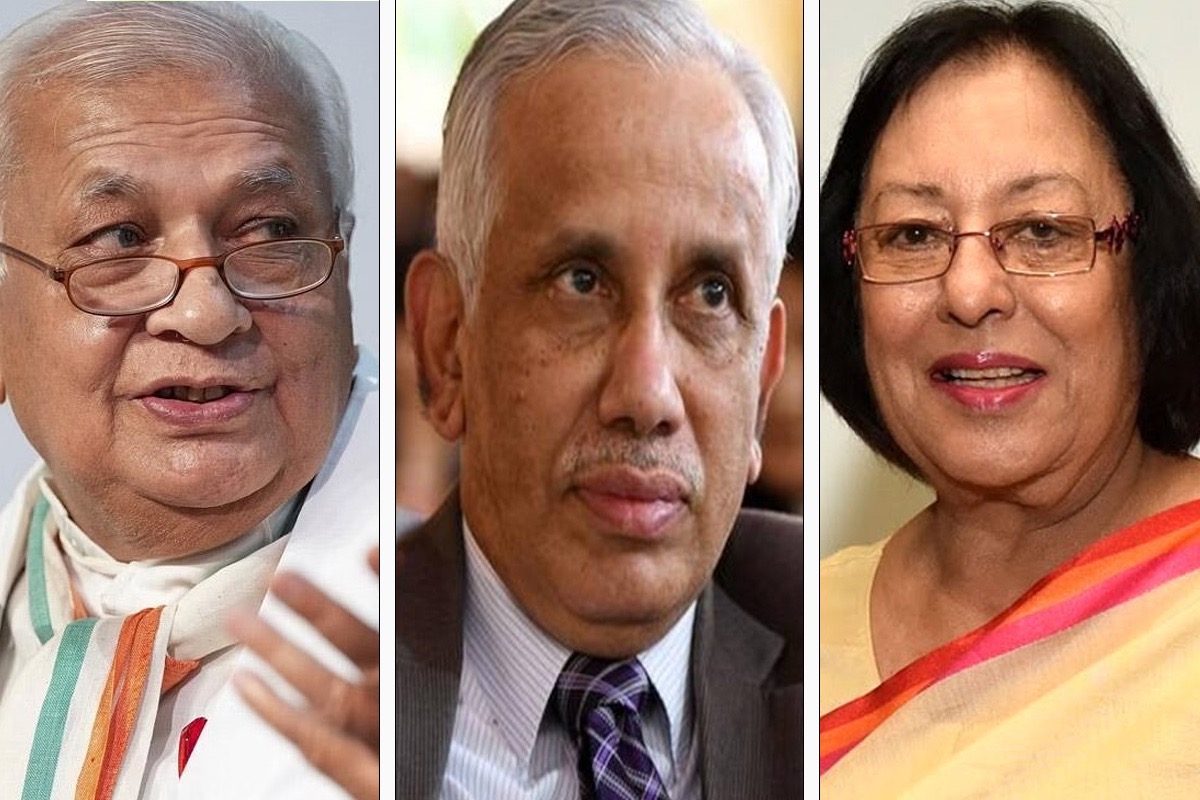Retired Supreme Court judge, Justice S Abdul Nazeer – who was a part of many landmark judgments like the Ayodhya dispute, Triple Talaq, and validity of demonetisation – is the third Muslim to be appointed as a Governor under the Modi government.
Justice Nazeer was among the six persons who President Droupadi Murmu appointed to the constitutional office on Sunday.
The Modi government, which has been accused of discrimination against Muslims by many in Opposition parties, had earlier appointed academician Najma Heptulla and Arif Mohammed Khan as Governor to Manipur and Kerala respectively.
Before their appointment, Heptulla and Khan had been associated with the Congress party.
In August 2016, just two years after BJP stormed to power at the Centre, it appointed Heptulla as the Governor of Manipur a month after she resigned as the Union minister of minority affairs a month before. Her tenure ended in August 2021.
Nearly three years later in 2019, Prime Minister Narendra Modi’s government recommended sending former Congress leader, Union minister and Islamic scholar Mohammad Arif Khan to communist-ruled Kerala as its Governor. A critic of Islamic fundamentalism, Khan supported the BJP government on a number of issues including the criminalisation of Triple Talaq and the abrogation of Article 370.
On February 12, Justice S Abdul Nazeer – who retired on January 4 – was appointed as the Governor of Andhra Pradesh. He replaced Biswa Bhusan Harichandan, who has been shifted to Chhattisgarh. Nazeer, who took oath as a Supreme Court judge in 2017, his most celebrated judgement was his ruling that upheld the right to privacy as a fundamental right enshrined under Article 21 of the Constitution of India.
He was part of some of the Supreme Court benches that delivered landmark judgements. Justice Nazeer was the sole Muslim judge in the five-member Constitution bench of the top court that unanimously ruled in favour of the Hindu side in the Ramjanmbhoomi-Babri mosque title suit, paving the way for the construction of a grand Ram Temple in Ayodhya, Uttar Pradesh.
Justice Nazeer was also part of a Supreme Court bench that declared the practice of instantaneous triple talaq (talaq–ul–biddat) as unconstitutional in 2017. However, then Chief Justice JS Khehar and Justice Nazeer disagreed with three other judges on the panel, asking for a six-month ban on the practice until a law was implemented.
Just before his retirement, Justice Nazeer upheld the Modi government’s 2016 demonetisation exercise – which Opposition parties have called a policy disaster – as lawful. The judgment, passed by a 4:1 majority, held that the government’s decision to demonetise currency notes of Rs 500 and Rs 1000 “does not suffer from any flaws in the decision making process”.
Justice Nazeer’s appointment has attracted criticism from the Opposition parties and several quarters of society, with the Congress terming it a “great threat” to the independence of the judiciary. In response, Union law minister Kiren Rijiju said, “The whole eco-system is once again in full swing on the appointment of a Governor. They should better understand that they can no more treat India as their personal fiefdom.”










